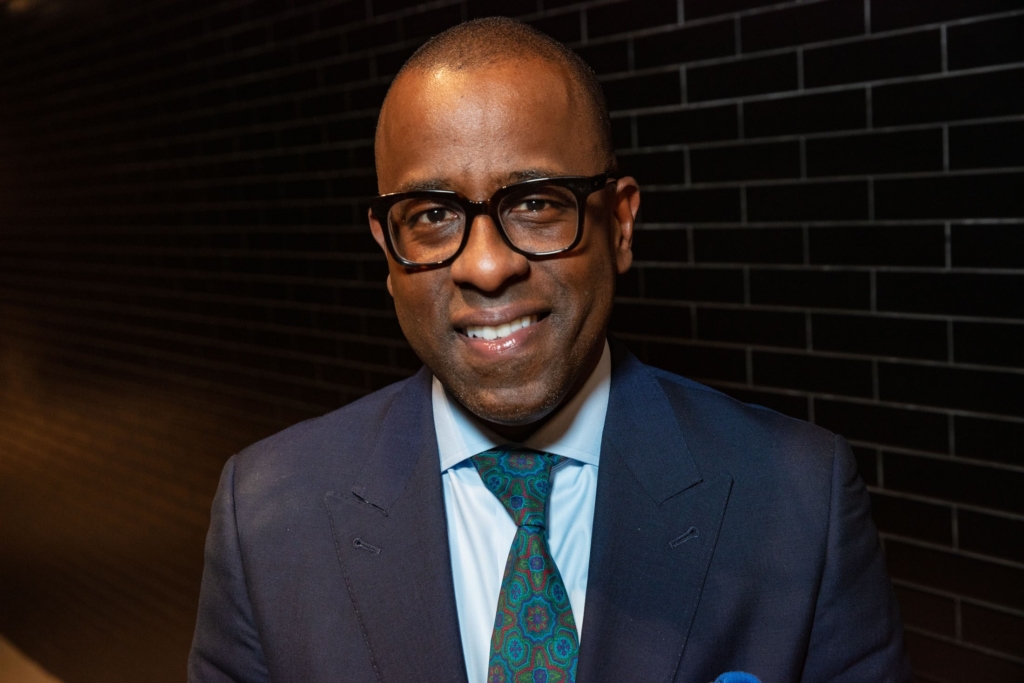
Graduates at Howard University in Washington, D.C. Howard photo
The financial services industry, like many other fields, has a diversity problem.
In entry-level positions, 61% of roles are held by white professionals with Black professionals holding only 10%. That number drops significantly at the C-suite level, where white professionals make up 90% of executive positions, with Black professionals holding only 3%, according to a McKinsey study.
The lack of diversity is something that three leading ‘alternative investment’ firms are trying to change. Apollo Global Management, Ares Management, and Oaktree Capital Management have come together to create AltFinance, a joint initiative that will invest $90 million over 10 years to train students for careers in the alternative investments industry, a field within financial services that focuses on investments outside the traditional categories of stocks, bonds, and cash. Typical alternative investments include private equity, hedge funds, venture capital, commodities, and real estate.
The three firms will partner with four Historically Black Colleges and Universities (HBCUs) including Clark Atlanta University, Howard University, Morehouse College, and Spelman College to create greater access for HBCU students to careers in alternative investing and the broader financial services industry. The AltFinance initiative, set to launch by the first half of 2022, is designed with three main components: a mentored fellowship program, a virtual institute, and a scholarship program.
“The vision for this initiative is multifaceted: by exposing ambitious, highly talented HBCU students to the rewarding field of alternatives and by investing in their educational and professional growth, AltFinance can help support students’ careers while ensuring long-term diversity and representation in alternatives, one of the most influential industries in America,” Jonathan Simon, managing director and the head of Leadership Development and Diversity, Equity, and Inclusion at Apollo, says.

Jon Simon. Courtesy photo
MENTORSHIP AND EDUCATION
The fellowship program – developed and implemented in collaboration with the Management Leadership for Tomorrow (MLT), a national nonprofit organization – offers select students at partner HBCUs with the opportunity to work directly with a mentor to learn the ins and outs of finance and alternative investments. In addition, fellowship students will obtain scholarship funding to pursue professional and academic goals and have access to internships and career opportunities at the three firms.
Mentorship is a critical component to increasing diversity within organizations. On average, mentoring programs boost the representation of Black, Hispanic, and Asian-American women, and Hispanic and Asian-American men in organizations, by 9% to 24%, according to a Harvard Business Review report.
“Many HBCU students are curious about careers in business and finance but may not have access to the connections or guidance needed to break into the field,” Simon says. “Exposure is key and providing one-and-one coaching and mentorship will prepare these students to seek, interview and land careers in the alternative investment industry.”
On the academic front, AltFinance has partnered with the Wharton School of the University of Pennsylvania to create a virtual institute featuring relevant coursework and supplementary content developed by top professors and finance professionals. The virtual institute will be open to interested students at all HBCUs.
THE BUSINESS CASE FOR I&D
In McKinsey’s Diversity Wins report, experts analyzed data from more than 1,000 large companies across 15 different countries to offer a business case for diversity. The takeaway: diverse companies are more likely to outperform in profitability when compared to less diverse companies. The report highlights five key action steps for making progress in I&D. Ensuring representation of diverse talent is the first step.
“Organizations need to open the door to large-scale reskilling and reaching beyond traditional recruiting channels and qualifications to access diverse talent whose profiles likely differ from the status quo,” the report reads.
For an initiative, like AltFinance, improving I&D within the industry starts with ensuring that financial organizations are opening the doors to underrepresented talent. But progress in I&D also relies on the ability of an organization to foster an environment where minorities will want to stay.
“Our three firms fundamentally believe in the thesis that diverse teams outperform,” Simon says. “We are in the business of achieving the best returns for our investors and it is because of our cognitive diversity that we are able to do so. We understand that talent is our biggest differentiator, so when we can tap into all available talent pools, we will position our firms and the broader industry to win. On the inclusion side, it is how we will optimize the talent in our organizations. We have to be intentional about how we create environments that cultivate authenticity, care, and belonging.”
DON’T MISS: TOP BUSINESS SCHOOLS WITH THE MOST MINORITY STUDENTS or CORNELL’S NEW CLUB PLANS TO CLOSE REAL ESTATE RACIAL GAP











Questions about this article? Email us or leave a comment below.